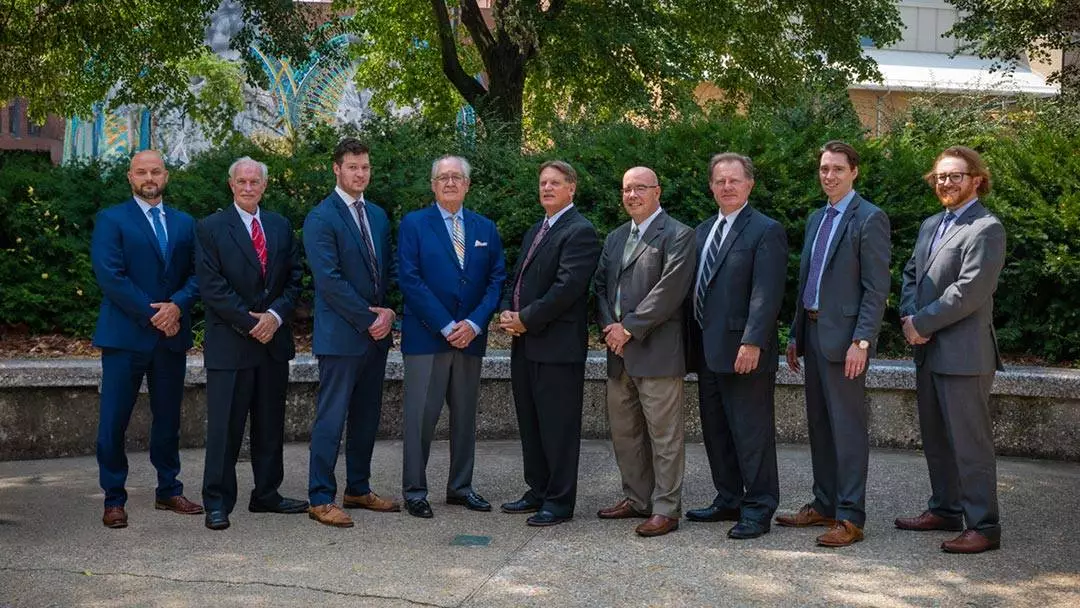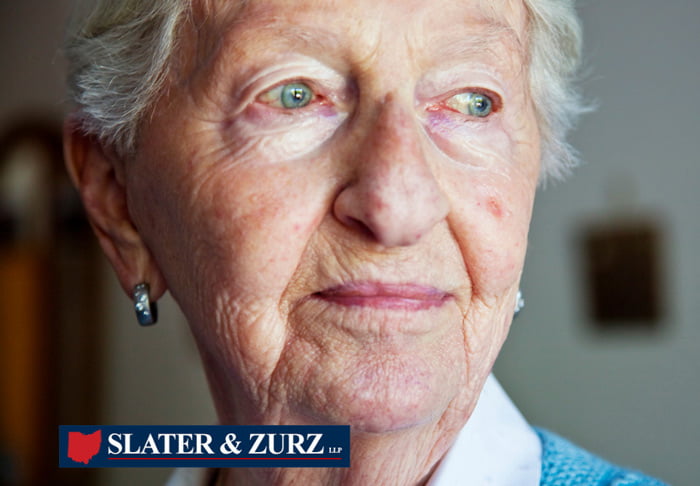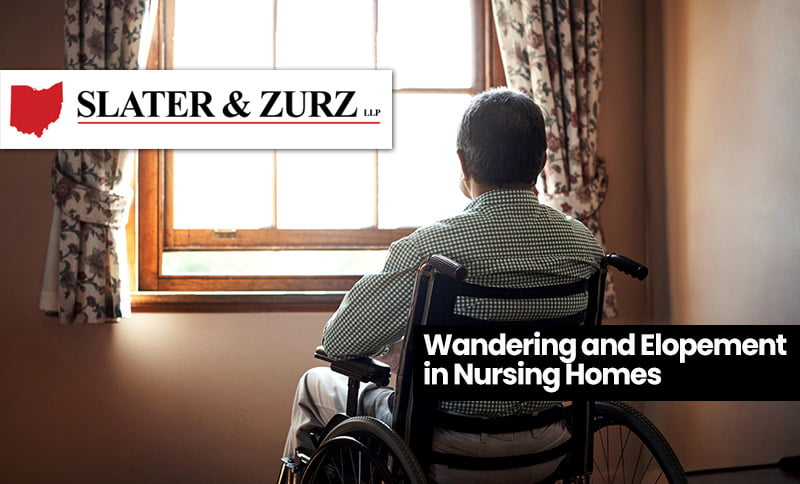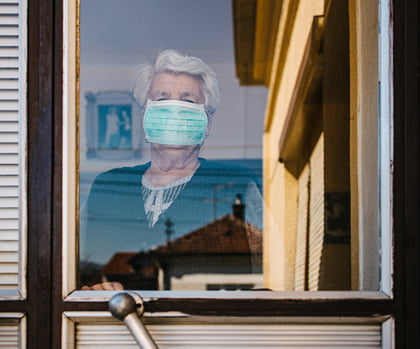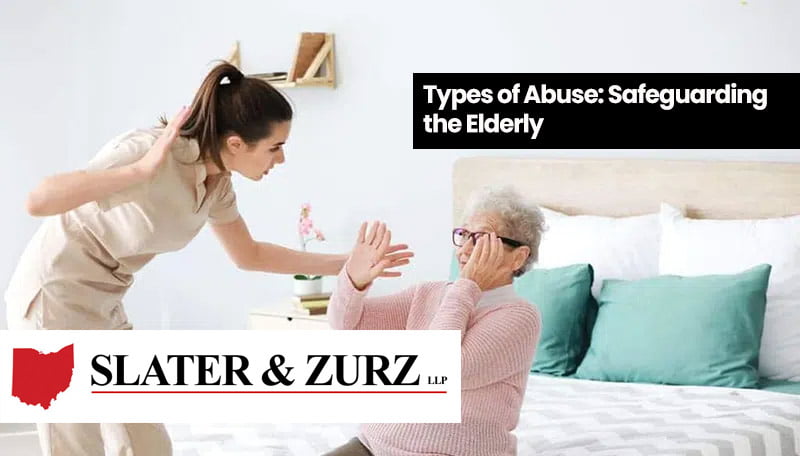It seems like such a simple solution, one that should have been available all along.
Named for the late Esther “Mitzi” Piskor, Esther’s Law allows a resident or their family members to install cameras within their Ohio nursing home living quarters. After nearly a decade of fighting for it, Esther’s law will finally go into effect on March 23.
For Slater & Zurz elder abuse attorney Brandon Dean, it signifies progress.
“It’s really a no-brainer,” says Dean. “This is an easy way to protect seniors that won’t cost nursing homes or assisted living facilities a dime.”
Although the camera provides much-needed protection and reassurance, its cost, and all expenses associated with its installation and maintenance will fall on the resident or their family.
But, as Dean puts it, it’s a small price to pay for peace of mind and accountability. Should a problem arise, the family has possession of that footage.
“The family will be in charge of the device, so as long as they save the footage and keep the device backed up and updated properly, that will be their footage to do with as they wish,” Dean says.
Possessing the footage avoids the lengthy and sometimes confrontational subpoena process whereby your attorney would have to rely heavily on the care facility’s cooperation.
Steven Piskor Knew Something Wasn’t Right.
The new bill will allow surveillance cameras in the rooms of nursing home residents.
His elderly mother wasn’t herself. She seemed uncharacteristically distant and withdrawn.
So, he installed a hidden camera in her room at the MetroHealth Medical Center in Ohio. Within only a couple of days, he saw what the problem was.
Staff members at the care facility were assaulting her. Although his video is difficult to watch, it thankfully has brought about a positive change in the state.
Ohio will become the 11th state to allow cameras in the rooms of residents living in nursing homes and long-term care facilities after Illinois, Louisiana, Maryland, New Jersey, New Mexico, Oklahoma, Texas, Utah, Virginia, and Washington.
There are; however, stipulations detailed in the new legislation. Among other things, cameras cannot be hidden, mandatory signage must be present notifying others that cameras are in use, and consent forms must be signed to allow the cameras to be turned off during doctor exams, visits from clergy, and during bathing.
The cameras shouldn’t replace due diligence, however, says Dean, Partner in Charge of Slater & Zurz’s elder abuse division.
Dean recommends:
- Keep your own documentation, including copies of medical records, the date, time, and the name of the person you spoke with during every interaction at the facility.
- Checking on your loved ones as often as you can, visiting them in their homes, and ask staff members a lot of questions.
- Insisting your loved one be taken to an acute care hospital for all injuries as they keep more detailed and easily accessible records.
- Calling a qualified nursing home abuse lawyer since these cases are often very complex.
In the event of suspected abuse, Dean also suggests contacting the Ohio Department of Health immediately. The agency can initiate a thorough, on-site investigation within 30-60 days.
“It can take several months to get records otherwise,” Dean says.
When the Ohio Department of Health starts its investigation, it will interview staff and review records – records that would likely be unavailable for several months.
Thousands Of Nursing Home Abuse Cases Reported Annually
Nursing home abuse is a common occurrence in Ohio. It is estimated that more than 115,000 seniors are subject to nursing home abuse and/or neglect each year, with thousands more cases going unreported.
According to Miami University’s Scripps Gerontology Center, by 2025, more than 1 in 4 Ohioans will be 60 years of age or older.
As legislators continue to debate new safeguards for Ohio’s aging population, Dean believes Esther’s Law is a major step in the right direction.
Hiding cameras to capture suspected abuse is nothing new, but now such cameras are legal and used in court when abuse is discovered.
After Steven Piskor captured his mother’s abuse on a hidden camera, the state fined the nursing home $357,000, sent one aide to prison for ten years, and another to jail for six months.
Some advocates feel Esther’s Law will only begin to scratch the surface – that larger fines, lengthier sentencing guidelines, and heftier damage awards will be the real catalyst in finally bringing abuse numbers down dramatically.
Experience Is Key To A Positive Outcome
Working with an experienced nursing home abuse lawyer from Slater & Zurz is the first step toward preventing future cases of abuse.
When abuse is discovered and a lawsuit is filed, the awarded damages speak volumes.
A compensation award can significantly improve the victim’s quality of life and force a care facility to make significant changes.
If your dealings with the nursing home have been complicated, you can imagine how difficult it is to navigate a legal entanglement.
Slater & Zurz nursing home abuse lawyer Brandon Dean has been helping families through the process for years, keeping his clients well informed through every step.
Having a nursing home abuse lawyer who has experienced of elder abuse is a must. If you or a loved one are dealing with an issue involving a nursing home or elder care facility, call us. The consultation with a nursing home abuse lawyer is free, and we only earn our fee if you win.
We advocate strongly on behalf of injured victims across Ohio, with convenient locations in Akron, Canton, Cincinnati, Cleveland, Columbus, and Toledo.


